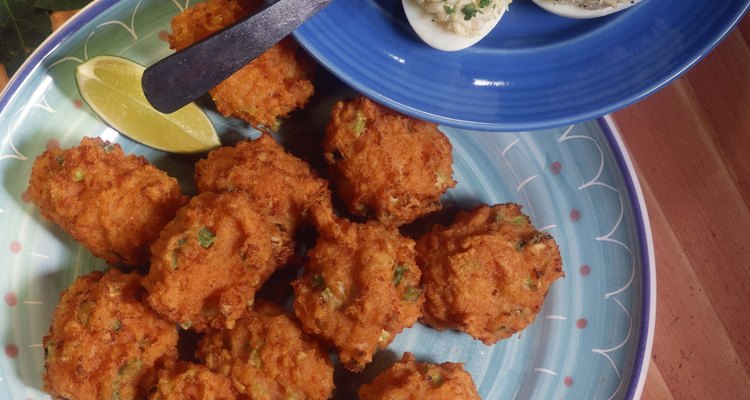
Nothing brightens cookouts and family gathering quite like a platter of deviled eggs sprinkled with paprika. Tender white eggs with fluffy yellow yolks tempt the taste buds, but making them isn't always as easy as it seems. Sometimes, boiled eggs stick to the shell, making it difficult to remove them in one piece. Learning what causes the eggshell to stick to boiled eggs, and a few tricks to prevent it from happening, allows you to show off your culinary skills in style.
Fresh Eggs
A fresh egg tends to stick to the shell when boiled due to its high acid content. As the egg ages, carbon dioxide and moisture inside the egg gradually leak out through the thousands of tiny pores in the shell. This lowers the acidity inside the egg and makes it less likely to stick to the shell when boiled. The contents of the egg also shrink slightly due to moisture loss. Air that diffuses into the egg through the shell creates a larger air cavity at the end of the shell, which further makes peeling easier. Avoid using the freshest eggs when boiling eggs and instead use those you've had for two or three days.
Cooking Time
Boiling affects the pH level inside the egg, lowering the acidity, similar to the process in aging. Undercooked eggs are more likely to stick to the shell as they are more acidic than those that are cooked for a longer time. This does cause a slight problem because overcooking hard-boiled eggs makes the white of the egg rubbery and may create a green ring around the yolk. Adjusting your cooking time may make hard-boiled eggs easier to peel.
Pricking the Shell
Making a pinhole in the large end of the shell before boiling the egg makes shelling easier. Because the large end of an egg has an air sac between the contents of the egg and the shell, pricking does not cause the egg contents to seep out. When you prick the shell of the egg before boiling, some water seeps into the egg between the shell and the contents of the egg, making it easier to peel when boiled, notes Exploratorium's Science of Cooking.
Cold Water
Eggs continue to cook even after taking them out of the boiling water, unless you cool them quickly. Plunging them into cold water stops the cooking process and makes the eggs easier to peel. If they still resist shelling, cracking them gently to loosen the shell and holding them under cold running water typically makes shelling easier, as the water works as a lubricant to slip the egg free of the shell.
Related Articles
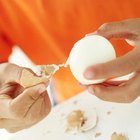
Should I Pierce Eggs Before Boiling?
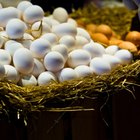
How to Cook a Hard Boiled Egg With a ...

Can You Hard Boil a Broken Egg?

Can You Eat an Egg That's Been Frozen?
How do I Keep Scrambled Eggs From ...

Why Do Boiled Eggs Smell?
How Much Does it Cost to Freeze Your ...

Shelf Life of Hard Boiled Eggs

What Happens When an Egg Cracks While ...
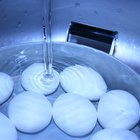
How to Overcook Hard Boiled Eggs
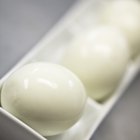
What Causes a Green Ring Around the ...
How Long After I Cook Hard-Boiled Eggs ...
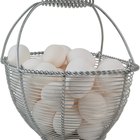
How to Write a Secret Message on the ...
How Long Before a Hard Boiled Egg Goes ...
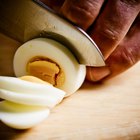
Can You Eat Hard-Boiled Eggs Even ...
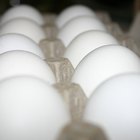
How to Store Cracked Eggs in ...

Calories of Egg Whites Vs. Whole Eggs
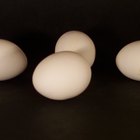
How to Boil Organic Eggs

How Can I Tell If an Egg Is Hard-Boiled ...
How to Make an Overeasy Egg
References
Writer Bio
Nannette Richford is an avid gardener, teacher and nature enthusiast with more than four years' experience in online writing. Richford holds a Bachelor of Science in secondary education from the University of Maine Orono and certifications in teaching 7-12 English, K-8 General Elementary and Birth to age 5.
Photo Credits
Jupiterimages/Comstock/Getty Images